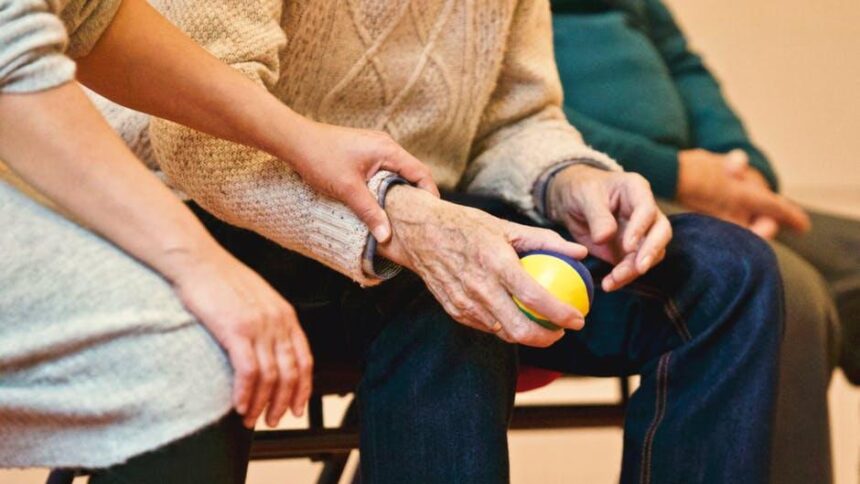Nursing home neglect is a significant problem that affects many older adults each year. If you believe your loved one isn’t receiving the necessary care in a nursing home, it’s important to understand what you can do. Neglect can show up in different ways-like not helping with hygiene, missing medical care, or treating someone poorly.
- Sudden Weight Loss
- Poor Hygiene or Unsanitary Living Conditions
- Frequent Injuries or Unexplained Bruises
- Changes in Mood or Behavior
- Neglect of Medical Needs
- Understanding Your Legal Rights
- Filing Complaints and Reporting Neglect
- Finding Support: Legal Guidance and Resources
- Building a Case Against Neglect
- Assessing Your Options: Mediation vs. Litigation
- The Importance of Advocacy and Vigilance
- Next Steps for Families
Recognizing the warning signs can help you advocate for the health and safety of someone you care about. Let’s dive in!
Identifying the Signs of Nursing Home Neglect
To tackle nursing home neglect, the first step involves being able to identify its signs. Some common indicators include:
Sudden Weight Loss
If your loved one is losing weight quickly, it could mean they aren’t getting enough food or the right nutrition. This may be a sign that the staff is not properly monitoring or meeting their dietary needs.
Rapid weight loss should never be ignored because it can lead to serious health problems. If you notice this, it’s important to speak up and get help right away.
Poor Hygiene or Unsanitary Living Conditions
Dirty clothes, unwashed bodies, or messy rooms can be signs of poor hygiene care. Nursing homes are responsible for keeping residents clean and making sure their living areas are safe.
When these basic needs aren’t met, it could mean the staff is not doing their job properly. It’s important to notice these signs and raise concerns to protect your loved one’s health and comfort.
Frequent Injuries or Unexplained Bruises
Bruises, cuts, or broken bones without a clear reason can be signs of rough handling or lack of supervision. Older adults can get hurt more easily, but frequent injuries should raise concern. It is essential to ask questions and document anything unusual.
Changes in Mood or Behavior
If your loved one seems quieter, sadder, or anxious than usual, it could mean something is wrong. Emotional changes often happen when someone feels scared, lonely, or mistreated. These signs are just as serious as physical ones.
Neglect of Medical Needs
Missing medications or untreated health problems are signs that medical care is being ignored. This kind of neglect can lead to serious illness or even life-threatening issues. Regular checkups and care should always be part of nursing home services.
Understanding Your Legal Rights
As a family member, you have legal rights when it comes to your loved one’s care. These rights may vary depending on the state, but there are common regulations that help protect individuals in nursing homes. The Nursing Home Reform Act gives residents certain rights, like the right to be safe and to get proper care.
If you suspect your loved one is experiencing neglect in a nursing home, it’s crucial to maintain records. Write down what you see, the care your loved one gets, and any talks you have with the staff. This information can help if you need to report the problem to the nursing home or take legal action.
Filing Complaints and Reporting Neglect
If you find out that neglect is happening, the next step is to file a formal complaint. Most nursing homes have established procedures for handling complaints, and utilizing them can be an effective first step.
You can also report the problem to your state’s long-term care ombudsman or a state agency that oversees nursing homes. These groups can look into the complaint and help protect the residents.
It’s also important to know that it’s illegal for a nursing home to punish residents or families for speaking up. Being aware of this can facilitate raising your concerns without fear.
Finding Support: Legal Guidance and Resources
Navigating the complexities of nursing home neglect can be daunting, particularly as emotions run high in such circumstances. Seeking assistance from an experienced nursing home abuse and neglect lawyer can provide the guidance you need. They can evaluate your situation, clarify your rights, and help you understand the legal processes involved in filing a complaint or seeking compensation.
In addition to legal assistance, numerous grassroots organizations and support groups exist to help families facing similar situations. These resources can offer emotional support, advice, and educational materials to empower you in taking action. Connecting with others who understand what you’re going through can be invaluable.
Building a Case Against Neglect
When pursuing a case related to nursing home neglect, it’s essential to gather as much evidence as possible. This evidence can include:
- Medical records showing a decline
- Witness statements from others
- Photos of unsafe conditions
- Communication with the nursing home
Comprehensive documentation will be pivotal in establishing that neglect occurred and can significantly support your claims in legal proceedings.
Assessing Your Options: Mediation vs. Litigation
When deciding how to handle nursing home neglect, think about whether mediation or a lawsuit is better for your situation. Mediation is less aggressive and lets you and the nursing home try to solve the problem together. It can save time and money, and it may help keep a good relationship with the nursing home.
But if mediation doesn’t work, you might need to take legal action. A lawsuit can force the nursing home to make changes or pay for the harm caused. Having strong evidence can help your case in court.
The Importance of Advocacy and Vigilance
Speaking up for your loved one in a nursing home is very important to protect their well-being. Visiting regularly and talking with the staff helps you stay informed about the care they receive.
Establishing good relationships with caregivers facilitates raising concerns when necessary. Keeping detailed notes about what you observe can strengthen your case if problems arise.
You can also reach out to local resources and support groups for advice and assistance. Learning about residents’ rights and staying involved gives you more confidence and power to improve your loved one’s care.
Next Steps for Families
Spotting and addressing nursing home neglect is a key duty for family members. Knowing your rights and acting quickly helps protect your loved one. Keep records of any neglect and seek advice from a lawyer experienced in nursing home abuse.
Remember, support is available. Reach out to local groups, find resources, and connect with other families. Together, you can help ensure your loved one’s rights are respected and they get proper care.
Is this article helpful? Keep reading our blog for more.














